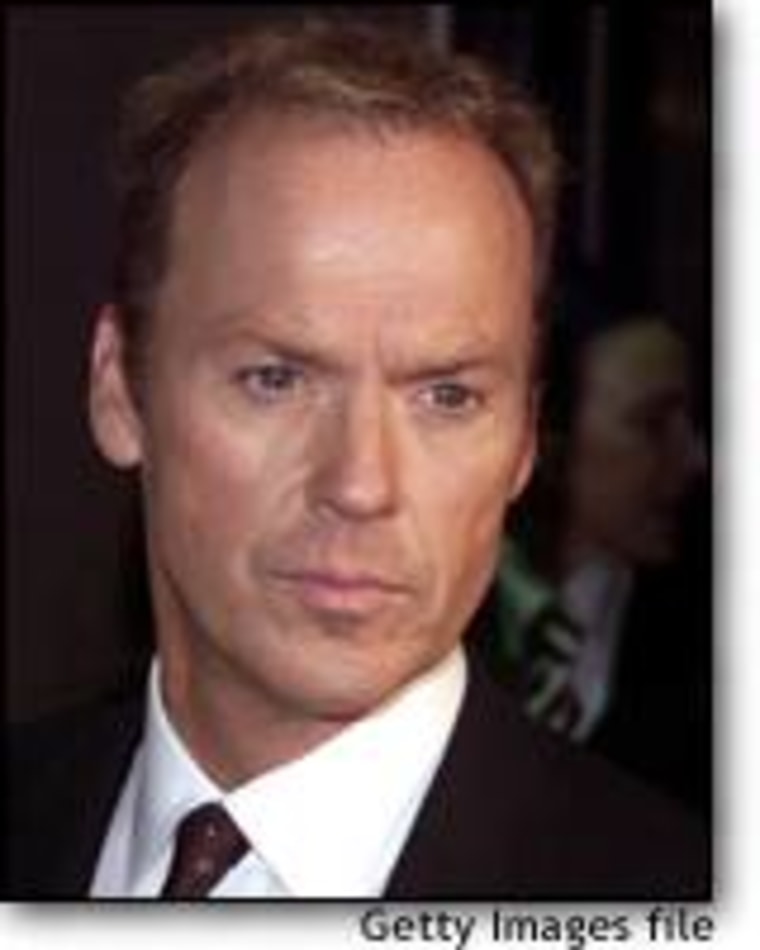Actor Michael Keaton and former CNN senior producer Robert Wiener, who Keaton portrays in the new HBO movie, “Live from Baghdad,” joined Chris Matthews in Thursday’s segment of “Political Buzz.”

“LIVE FROM BAGHADAD” tells the story of Wiener and his history-making crew in Baghdad in the days leading up to the Gulf war. They were the first journalists to report live from behind enemy lines.
Below, is a transcript of the interview Chris had with Michaael Keaton and Robert Wiener:
Here you are playing a journalist in a critical battle scene. Who do you owe loyalty to, the news organization you work for and the news you have to produce, or the country you come from?
KEATON: I think No. 1, you have to stay loyal as a journalist because the journalist, especially in those days, pretty much had to take that neutral zone and just report, just lay it out there and let people judge for themselves. I think this movie also is very balanced in that regard, by the way.
Do you have a sense that people in that situation feel those stresses to report news as news, or report the patriotic side of the news?
WIENER: I think patriotism has nothing to do with journalism. Let me say that straight out, and also, CNN at that point in time was an international news organization. Our job was to try to stay and report from Baghdad to try to provide context, as much as we could in an admittedly repressive regime.
How do you deal with the repressive regime when you’re trying to get the truth out, in this case Saddam Hussein’s Iraq doesn’t want it out? What’s your trade craft? How do you get it through the news?
WIENER: Well, you just have to keep pushing the outside of the envelope and you have to be patient and crafty and...
KEATON: Robert, not only in his role, but in his personality type, puts himself in a position where he can be criticized 24 hours a day, but somebody has got to take charge and do it, and one of I think his skills— and I watched him on the panel last night, a great panel in Washington, D.C., really exciting— was his ability to look, case out the entire scene, and negotiate.
Are you for this war with Iraq?
KEATON: No, I’m not saying that it should never happen but it has to be an absolute last resort. And I only feel a little better now given that there’s a coalition and we got a little more backing from the rest of the world and it’s done for the right reasons.
WEINER: Number one, I think Saddam has an obligation to comply with the United Nations resolutions. But by the same token, I think the American public needs to be extremely wary of the propaganda coming out of the White House.
What’s the propaganda? What’s the nontruth in that propaganda you hear?
WIENER: Well, a number of items. President Bush alluded to the fact that Iraq has drones that could possibly reach the United States with poisoned gas, patently absurd. When he addressed the general assembly, he alluded to an American “missing in action.”
The fact of the matter is, there was an American pilot who went down. There were two delegations from the Pentagon that went to Iraq and declared this guy “Killed In Action.” Suddenly before the president of the United States went before the general assembly, the Pentagon changed his status to “Missing in Action.”
KEATON: I think there’s always propaganda. I think that’s a given. I think there’s propaganda all over the world and probably less on our part than the majority of the nations out there.
What do you think is driving Bush to war?

KEATON: I think there’s a lot of things. And by the way, there’s things with President Bush that I totally agree with. One of them is, if you’re going to go in and inspect— with inspections, anywhere, any time, almost any way you have to do it. No questions. That’s the end of that story.
But I think that he has many reasons and I think some of the reasons — regime change is one, and that’s fine if that’s really what the end game is. The problem is there doesn’t seem to be an end game. And Afghanistan is in disarray at this point. Aren’t you spread too thin?
Do you get a sense we’re preparing for this part that journalists try to tell the truth as a group?
KEATON: Yes, generally, I think they do and especially did— Robert is a man with a conscience. The world has changed. You work for a giant corporation. So do I most of the time. That definitely colors how things get down in terms of ratings and appeal and those days it was less so.
It seems to me the portrait I’ve seen from this movie and it is a hell of a movie, a real crackler, “Live From Baghdad.” It makes everybody who’s watching it want to be like Ernest Hemingway.
WIENER: I think our mutual friend Peter Arnett said that getting used to post-war journalism is a little like getting used to marriage. It’s exciting enough but don’t expect any thrills.
KEATON: It’s got a huge entertainment value, this movie. I keep referring to this panel in D.C. last night, the panel discussion with Marvin Kalb and Bernie Shaw and Robert. I feel guilty to say it, but sometimes it’s stimulating and exciting, the idea of being a war correspondent. But I got to tell you, you listen to these guys, it’s scary.